Energy
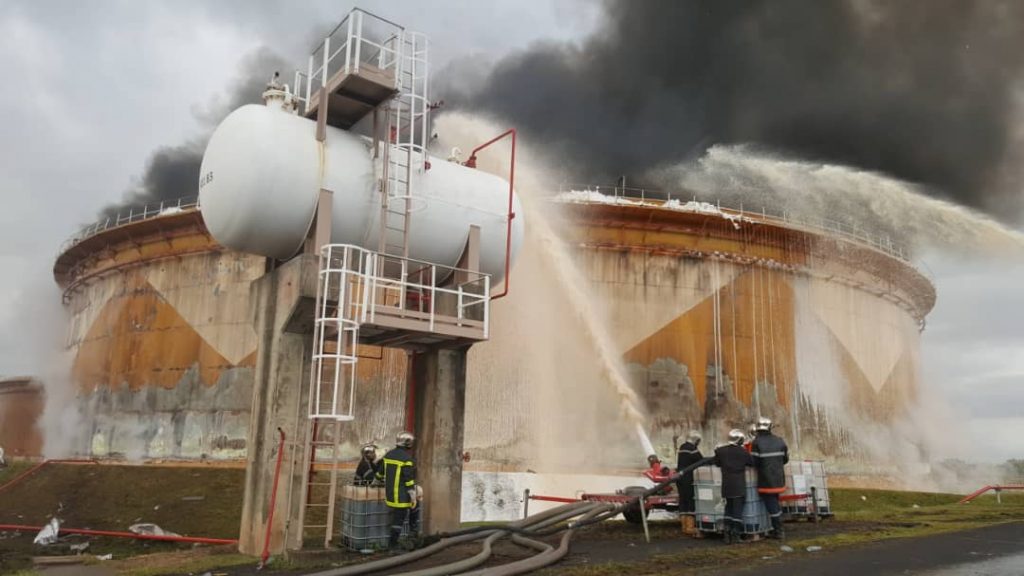
Cameroon’s SONARA restructures commercial debt with Vitol
Cameroon’s SONARA, which operates Central Africa’s biggest refinery, has reached a deal with oil trader Vitol to restructure its commercial debt. The deal had been in the making for some time as the state-owned refining company seeks to restructure its debt, which amounted to 3% of GDP and 6.6% of total public and publicly-guaranteed debt at the end of 2020. SONARA’s 42,000 barrels per day (bpd) refining facility has been offline since a fire destroyed several of its units in 2019. In October 2021, the company had already managed to reach a revised agreement with local banks to restructure its debt amounting CFAF 261 billion, to be repaid over 10 years with an interest of 5.5% per year. It had since then focused on reaching similar agreements with international lenders. SONARA’s debt to Vitol amounts to some $279m, which it will be repaid under the same terms (10-year period, 5.5% interest rate). The deal paves the way for the negotiations of similar arrangements with the other international lenders. Meanwhile, these successful agreements over the restructuring of SONARA’s debt have paved the way for the refinery’s rehabilitation. In April 2022, Presidential approval had been given for the refinery’s rehabilitation and restructuring under a public-private partnership (PPP), according to a letter consulted by Hawilti.
Read more »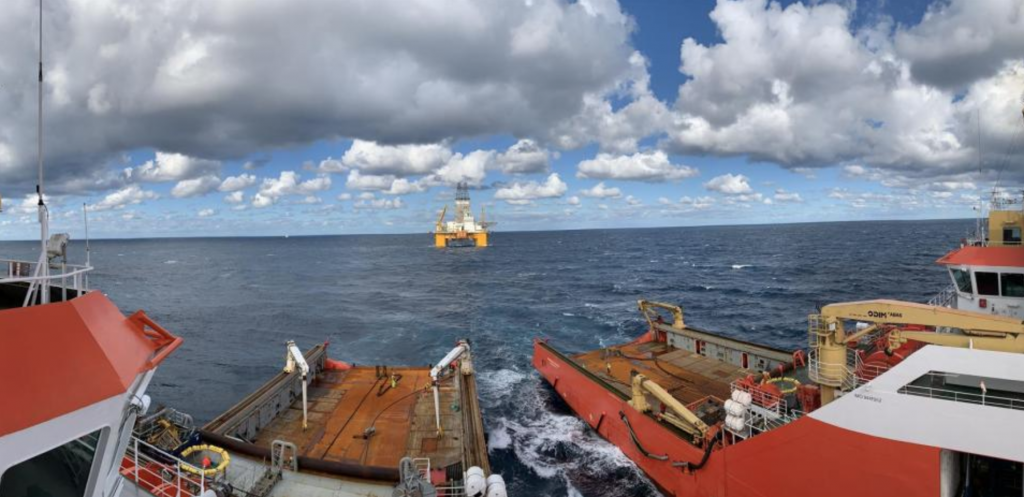
TotalEnergies applies for Production Right in South Africa
TotalEnergies has filed the Production Right Application for Block 11B/12B offshore South Africa, where it has made significant gas and condensate discoveries at Brulpadda (2019) and Luiperd (2020). Along with its partners Qatar Energy, CNR International and Main Street 1549 (Africa Energy Corp,), the French major has decided to relinquish the northern portion of the block while entering into a Gas Market Development Period to confirm the economic viability of the project. Development plans have so far focused on an early production system (EPS) targeting the Luiperd discovery to supply the domestic market in South Africa. Gas would be delivered to the Mossel Bay area, where South Africa already has key gas off-take infrastructure in place, including PetroSA’s gas-to-liquids (GTL) refinery and the 40 MW Gourikwa thermal power plant. Both plants represent 300 MMscfd of gas demand and were until now supplied by domestic fields that have now matured.
Read more »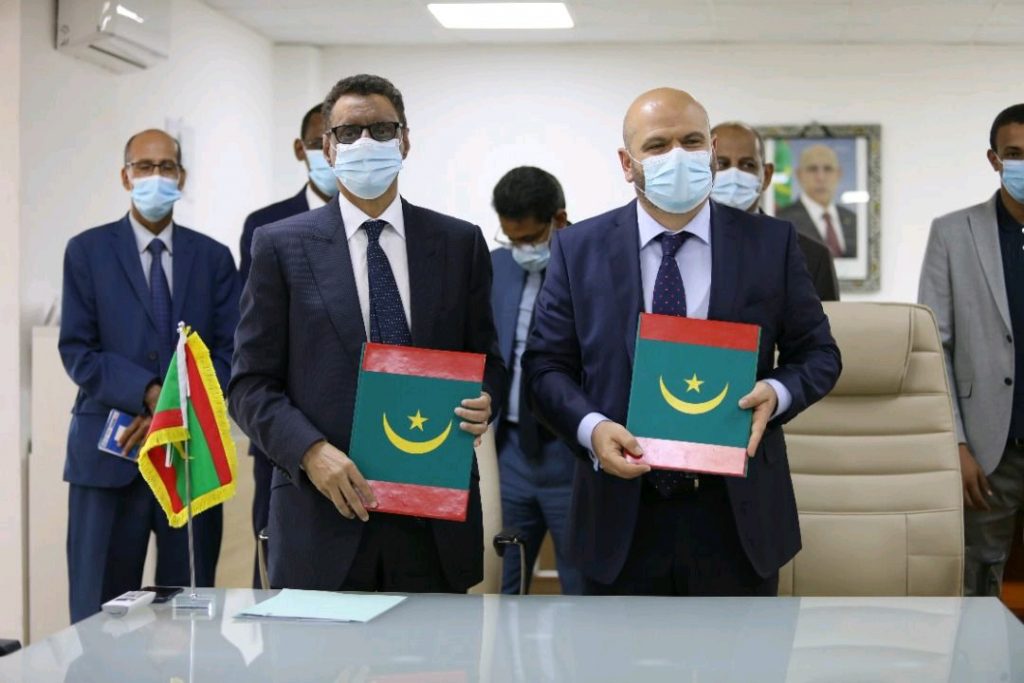
Total Eren joins Chariot in developing Mautiania’s flagship green hydrogen project
Total Eren and Chariot Ltd have announced the launch of feasility studies to do-develop Project Nour, a large-scale green hydrogen project in Mauritania. In September 2021, Chariot had already signed an MoU with the Mauritanian Ministry of Petroleum, Mines & Energy to progress the venture. The agreement notably gave Project Nour exclusivity over 14,400km2 of onshore and offshore area where pre-feasibility and feasibility studies would be conducted to generate solar and wind power used in electrolysis to split water and produce green hydrogen and oxygen. The new 50:50 partnership between Total Eren and Chariot will pool additional resources into the project’s feasibility, with a view of developing up to 10 GW in Mauritania. Total Eren already work together on several clean energy projects in Africa, under a long-term joint-development partnership signed in November 2021.
Read more »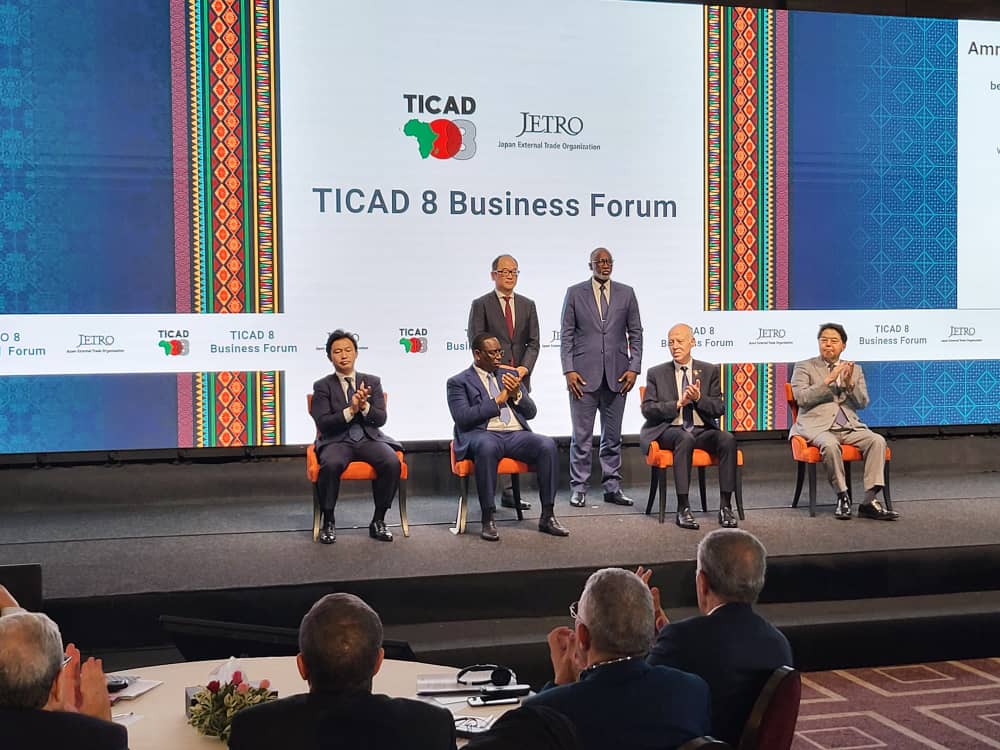
Senegal is planning to use its natural gas for ammonia and urea production
Senegal’s Petrosen Trading & Services, a subsidiary of the country’s national oil company, has signed a Memorandum of Understanding (MoU) with Turkey’s Çalık Enerji and Japan’s Mitsubishi for the pre-feasibility study of an ammonia and urea manufacturing unit. The agreement was signed in the presence of Senegalese President Macky Sall during the 8th Tokyo International Conference on African Development (TICAD8) held in Tunis on August 27th and 28th. The production of fertilizers is one of the option Senegal is exploring to monetise its offshore gas reserves, currently being developed by bp and Kosmos Energy for the export market. The Greater Tortue/Ahmeyim (GTA) project that straddles the Senegal-Mauritania border will start exporting LNG next year, but has an allocation of 35 MMscf/d reserved for the domestic market. Such allocation is expected to increase once the second phase of GTA is sanctioned, leaving Senegal with plenty of gas to process domestically. While the country’s strategy relies on switching several of its thermal power plants from diesel and HFO to natural gas, additional industries could also benefit from the processing and transformation of gas reserves. The pre-feasibility study for a gas-based ammonia and urea plant will be financed by the Ministry of Economy, Trade, and Industry (METI) of Japan and conducted by Mitsubishi Corporation and Nippon Koei.
Read more »
Globeleq planning 3.6 GW green hydrogen project in Egypt
Globeleq has announced today the signing of a Memorandum of Understanding with Egypt’s New and Renewable Energy Authority (NREA), the General Authority for Suez Canal Economic Zone (SCZONE), the Sovereign Fund of Egypt for Investment and Development (TSFE), and the Egyptian Electricity Transmission Company (EETC), to jointly develop a large-scale green hydrogen facility within the Suez Canal Economic Zone. The project will be developed in three phases totalling 3.6 GW of eletrolysers and 9 GW of solar PV and wind power generation. Globeleq will act as lead developer and investor and start with an initial pilot phase relying on a 100 MW electrolyser and focusing on green ammonia fertilizers. Egypt’s vast solar and wind resources have already attracted global investors into some of the world’s largest green energy projects there, including the Benban Solar Park. Earlier this year, Scatec had also signed a Memorandum of Understanding with the General Authority for Suez Canal Economic Zone (SCZONE), The Sovereign Fund of Egypt (TSFE), the Egyptian Electricity Transmission Company (EETC), and the New and Renewable Energy Authority (NREA), to jointly develop a green ammonia facility with a production capacity of one million tonnes per year, with a potential for an expansion to three million tonnes annually.
Read more »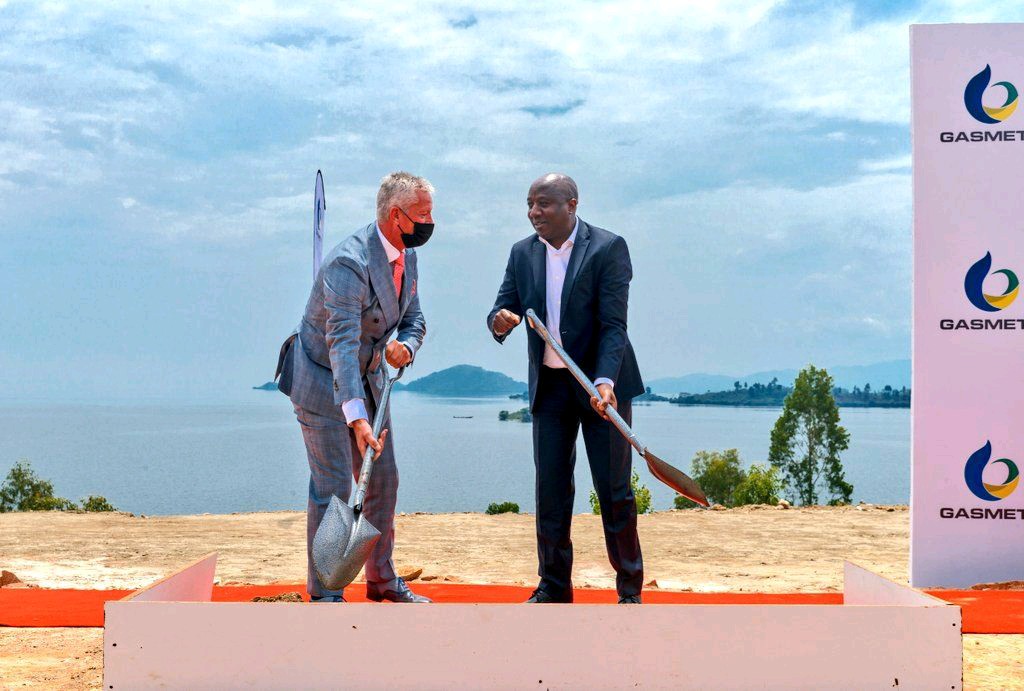
Rwanda has broken ground on new CNG project from Lake Kivu
On August 18th, Rwanda’s Prime Minister Dr. Edouard Ngirente officiated the groundbreaking ceremony of GasMeth Energy’s new compressed natural gas (CNG) project on the shores of Lake Kivu. The project will be extracting gas from Lake Kivu before processing it and distributing it across Rwanda as CNG, an alternative to imported diesel and HFO. GasMeth Energy holds a 25-year concession with the Government of Rwanda to extract 40 MMscf/d of natural gas from Lake Kivu. The gas will be extracted offshore before being sent to an onshore gas processing and compression facility. This is the third project to be developed in Rwanda to extract gas from the Lake, which serves as a natural boundary with the Democratic Republic of Congo (DRC). In 2016, ContourGlobal commissioned its 26 MW KivuWatt project, a floating gas-to-power barge turning Lake Kivu’s deadly methane into power for Rwandan households and industries. Since 2019, Shema Power Lake Kivu, owned by Highland Group Holdings, has also been constructing a 56 MW methane gas extraction and gas-to-power plant under a public-private partnership (PPP) there. The project is structured as an independent power producer (IPP) and is currently being completed.
Read more »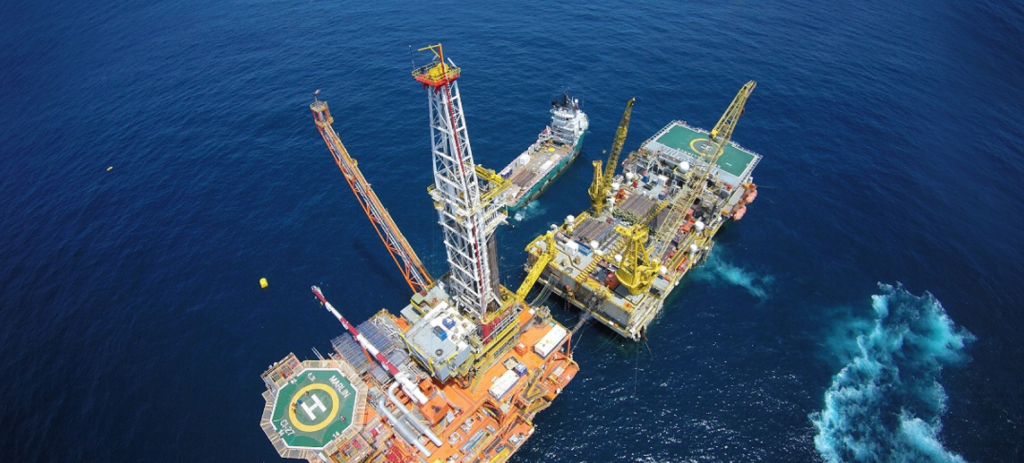
Norway’s DNO enters Côte d’Ivoire’s as it looks for more African oil & gas deals
DNO has announced yesterday the acquisition of Mondoil Enterprises from Oslo-listed RAK Petroleum for a consideration of $117.25m. By acquiring Mondoil Enterprises in an all-share transaction, DNO gains a 33.33% indirect interest in Foxtrot International, operator of the producing block CI-27 and exploration block CI-12 in Côte d’Ivoire. “As DNO targets expansion beyond the Kurdistan region of Iraq and the North Sea, the move into Côte d’Ivoire is an important first step into a highly prospective region offering a broad set of growth opportunities through acquisition of producing fields, development assets and exploration licenses,” said Bjørn Dale, DNO’s Managing Director. The company also added that is it already evaluating other opportunities in Africa. A Significant Gas Asset Côte d’Ivoire’s offshore CI-27 Block represents one of West Africa’s most strategic gas assets as it produces and supplies natural gas to the country’s biggest power producers: CIPREL and Azito Energie. As a result, CI-27 continues until today to produce about 70% of the gas consumed on the Ivorian market, and ultimately providing power to millions of households and industries. The development of the block primarily focuses on the Foxtrot field, but also the Manta field discovered in 1981 by Phillips Petroleum, and the Mahi and Marlin fields discovered in 2005 and 2007 respectively by current operator, Foxtrot International. During the first half of 2022, gross sales averaged 200 MMscf/d of gas and 1,500 bpd of oil and condensate, DNO said. Over the 2020-2022 period, Foxtrot and its partners on CI-27 invested $350m into developing additional reserves and building new onshore facilities to increase gas production and processing capacity to 230 MMscf/d. The Sapura Berani rig was mobilized on the block this year, Hawilti’s Offshore Rigs Tracker shows. Three new wells and two side-track were drilled in total as part of the campaign. Côte d’Ivoire is emerging as a new oil & gas hub in West Africa Next to Nigeria and Ghana, Côte d’Ivoire has traditionally appeared as a less attractive market for oil & gas investments. While the country ambitioned to reach a production of 100,000 bopd this decade, output remains at below 25,000 bopd. However, fresh investments into power generation have justified the expansion of the country’s gas infrastructure while new offshore discoveries have repositioned it as an exploration frontier on the continent. The country’s two biggest thermal power producers, CIPREL and Azito Energie, are indeed both involved in expansion of their gas-to-power facilities around Abidjan. The ongoing Azito 4 expansion is adding 250 MW to Globeleq’s power complex in Yopougon, while Eranove is building a 390 MW plant in Jacqueville, known as Atinkou (CIPREL V). To supply feedstock to the new turbines, investments had to be made in gas production, processing, and distribution. To that purpose, Côte d’Ivoire’s Council of Ministers adopted in March 2020 four decrees that renewed the Exclusive Exploitation Authorizations of the Foxtrot (F Zone), Mahi, Manta and Marlin fields on block CI-27. Each decree extended the fields’ EEA by another ten years to ensure continued and reliable supplies of gas to the CIPREL V and Azito 4 power plants. Meanwhile, fresh exploration has yielded tremendous results offshore with the discovery of the Baleine field by Eni on blocks CI-101 and CI-802 in 2021. Baleine is one of sub-Saharan Africa’s biggest recent finds with 2.5 billion barrels of oil and 3.3 Tcf of gas discovered at the Baleine-1X well in 2021 and Baleine East-1X well in 2022. The development of the discovery was quickly approved by Côte d’Ivoire’s authorities and benefit from strong political support to fast-track the project and achieve first oil in 2023 (Phase 1). Such news has given hopes that this is just the beginning for Côte d’Ivoire’s oil & gas sector and more operators are expected to enter the market moving forward. In July 2022, Côte d’Ivoire’s Cabinet notably gave its greenlight for the negotiations of production sharing contracts (PSCs) for blocks CI-520, CI-521, and CI-522 with British independent Elephant Oil. Details on the development of block C-27 offshore Côte d’Ivoire are available in the “Projects” section within you Hawilti+ research terminal – plus.hawilti.com.
Read more »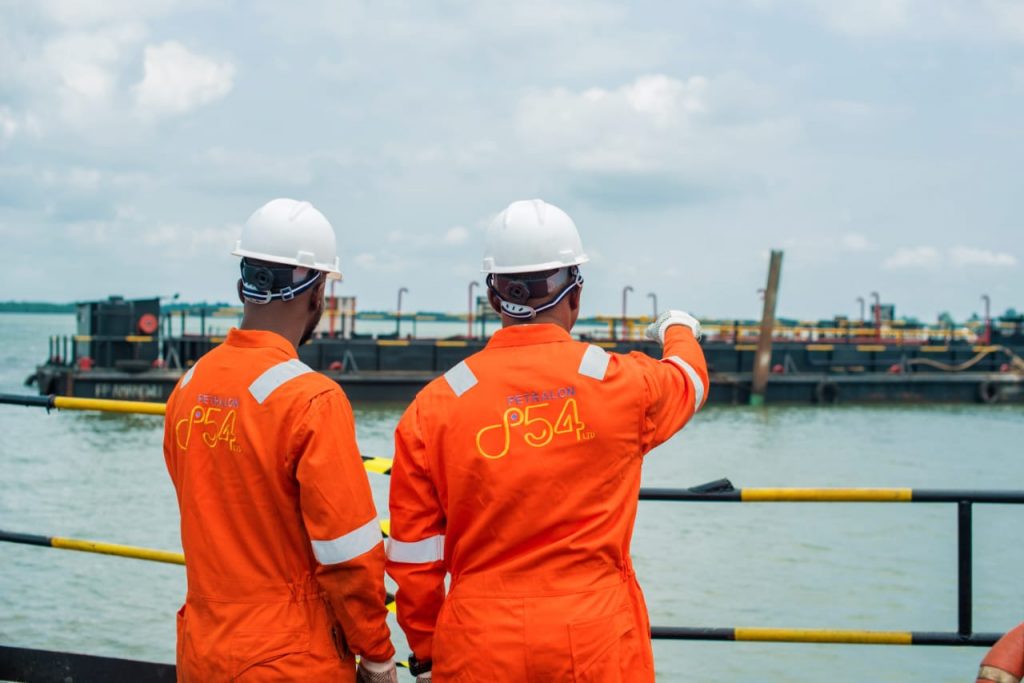
Petralon 54 takes action to start production from the Dawes Island Field in Nigeria by the end of 2022
Petralon 54 Ltd, a subsidiary of Petralon Energy Ltd, is in active engagement with its host community in the Niger Delta and has commenced technical and operational activities to achieve production at the Dawes Island Field by the end of 2022, the company said today. The move follows the award of the Dawes Island Marginal Field to Petralon 54 Ltd in 2021 and the issuance of its license – Petroleum Prospecting License No. 259 (PPL 259) in June 2022. The company has revealed some of its strategic initiatives to enable seamless operations at Dawes Island and restart production to raise national output. Petralon is notably in active engagement with the Host Community and its stakeholders in the Dawes Island Field to identify critical projects for implementation as well as create a formidable working partnership between Petralon 54 and its host/impacted communities. These include the traditional institutions/Council of Chiefs, Community Development Committees and other stakeholders. The company has also actioned several technical and operational initiatives, including surface well head checks and first line maintenance of the existing well head, refurbishment/reinforcement of field location infrastructure, mobilization of early well test equipment and all required field operations support facilities. Upon completion, these projects will ensure a safe resumption of production activities at Dawes Island.
Read more »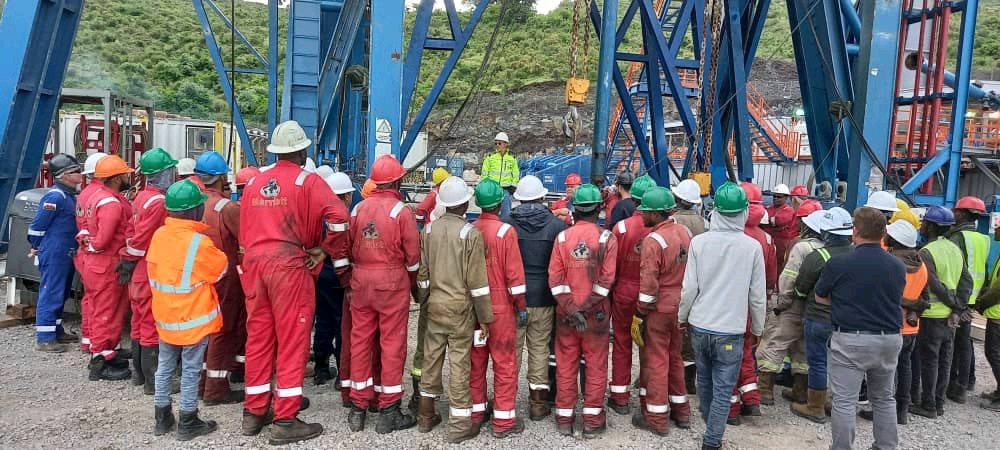
TMGO steps up drilling operations at Ethiopia’s flagship geothermal project
| 1 Comment on TMGO steps up drilling operations at Ethiopia’s flagship geothermal project
Tulu Moye Geothermal Operations (TMGO) has announced the spudding of the GD1 well by Marriott Drilling at its Tulu Moye geothermal project in Ethiopia. Marriott Drilling is the second drilling contractor mobilized on site along with the Kenya Electricity Generating Company (KenGen). TMGO is a joint venture of Meridiam (51%) and Reykjavik Geothermal (49%) that is developing Ethiopia’s first Independent Power Producer (IPP) project. The Tulu Moye geothermal facilities are expected to be set up on one of the best geothermal fields in the world, with an estimated capacity of over 1 GW. Phase 1 is targeting 50 MW by December 2024 and by 150 MW by 2025 under an $800m investment programme, before eventually ramping up to 520 MW. KenGen started drilling for phase 1 in March 2020 but had to suspend operations for several months due to travel restrictions imposed by the Covid-19 pandemic. Drilling activities were able to resume only in mid-June 2020 and the first well, GA1, was completed in early 2021. GA2 and GA3 were eventually drilled throughout 2021 followed by GB1 in early 2022. Details on the Tulu Moye Geothermal Project in Ethiopia are available in the “Projects” section within your Hawilti+ research terminal.
Read more »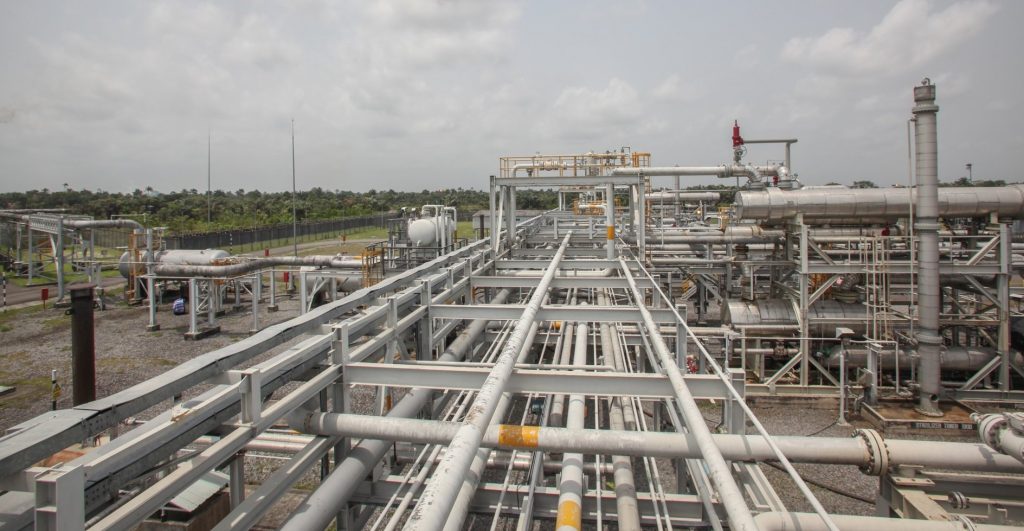
Nigeria: Accugas secures third Gas Sales Agreement of the year
Savannah Energy’s subsidiary Accugas has announced earlier today the signing of a new gas sales agreement (GSA) with Nigerian fertilizer manufacturer Notore Chemical Industries. The agreement covers the supply of up to 10 MMscf/d of gas on an interruptible and reasonable endeavours basis, based on gas availability and nominations, for an initial term of one year. Gas will be coming from Accugas’ 200 MMscf/d Uquo gas plant in Esit Eket, Akwa Ibom State. In February 2022, Accugas already entered into a new GSA with the Central Horizon Gas Company (CHGC), a subsidiary of Axxela. Under the terms of the GSA, CHGC can nominate to be delivered up to a maximum daily quantity of 5 MMscf/d. In June 2022, Accugas had also entered into a new 3-month gas sales agreement (GSA) with TransAfam Power Ltd to provide up to 35 MMscf/d of gas on an interruptible basis to the power plants of Afam Power Plc and Afam Three Fast Power in Okoloma, Rivers State. Details on the Uquo gas plant and Uquo marginal field development are available in the “Projects” section within your Hawilti+ research terminal.
Read more »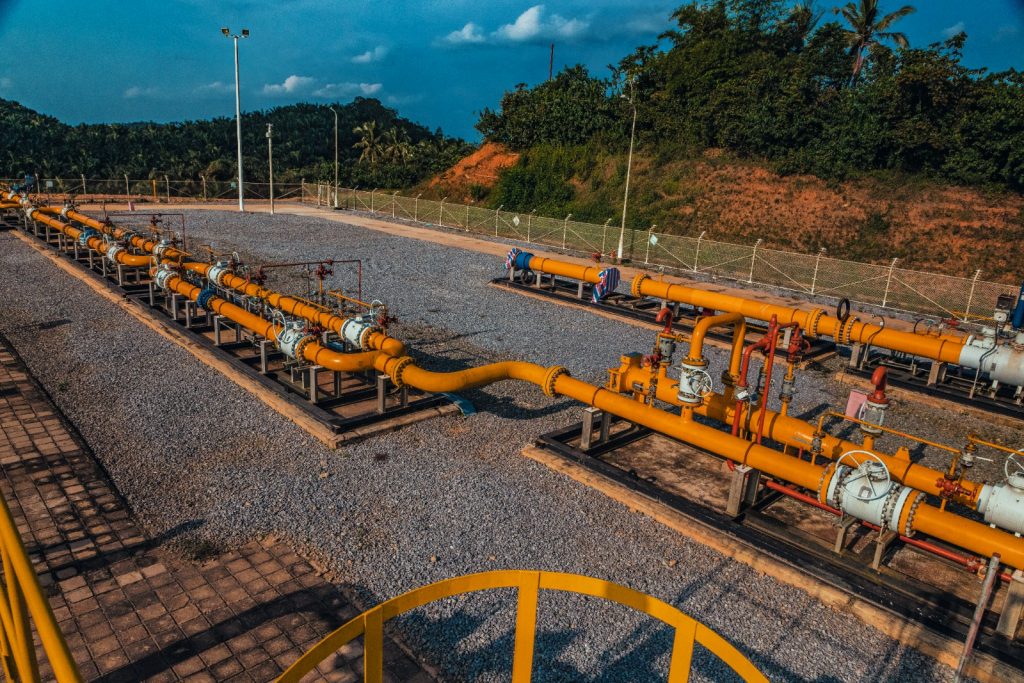
Genser Energy raises $435m to expand Ghana’s midstream gas infrastructure
American energy solutions provider Genser Energy has announced the closing of a $425m funding package to support the expansion of its midstream gas business in Ghana. The company is already a provider of captive power solutions to several of Ghana’s gold mines and is currently expanding across West Africa. The 8-year, $425m funding package includes a $325m syndicated senior loan facility and a $100m mezzanine loan facility. It will be used to refinance Genser Energy’s existing debt and support three critical midstream gas projects in Ghana. Expansion of Ghana’s gas pipeline network The first one is a 100km natural gas pipeline to Kumasi, Ghana’s second largest city. In doing so, Genser Energy seeks to make piped natural gas available within Ghana’s central belt and offer an alternative to imported trucked diesel and heavy fuel oil (HFO) for industries in the region. According to Genser Energy’s records, the company is planning to build an overall gas pipeline network of 320km in Ghana to connect its power generation plants to Ghana Gas’ Prestea Regulating and Metering Station (PRMS). In November 2019, a first phase of 80km was already commissioned to provide gas to Gold Fields’ Tarkwa and Damang gold mines power stations. Additional phases notably target gas supplies to Kinross Gold Corporation’s Chirano mine, Perseus Mining’s Edikan mine, and Gold Star Resources’ Wassa mines, among others. Launch of an integrated natural gas liquids (NGLs) business The second one is a 200 MMscf/d gas conditioning plant in Prestea, southwestern Ghana, where Genser Energy intends to produce natural gas liquids (NGLs) such as propane, butane, ethane, and liquefied natural gas (LNG). All NGLs will be sold under an off-take agreement to Trafigura, who notably participated in the mezzanine loan. Trafigura is also providing additional funding to the third and last project, a NGL storage terminal at the Takoradi Port. A wide range of financiers The ability of Genser Energy to secure such a debt package is an encouraging sign for Africa where several asset owners and operators are currently raising capital for domestic midstream and downstream gas ventures. A wide and diverse range of investors participated in Genser Energy’s senior loan facility, including regional and commercial international banks, development financial institutions, and funds. These comprised the Standard Bank of South Africa, Absa Bank, Société Générale, the Mauritius Commercial Bank, Ninety One, Barak Fund SPC Ltd, and the Development Bank of Southern Africa. On the other hand, the mezzanine loan facility is provided by Trafigura, Barak Fund SPC Limited and the US Based Fund, Trilinc Global Sustainable Income Fund Master Ltd.
Read more »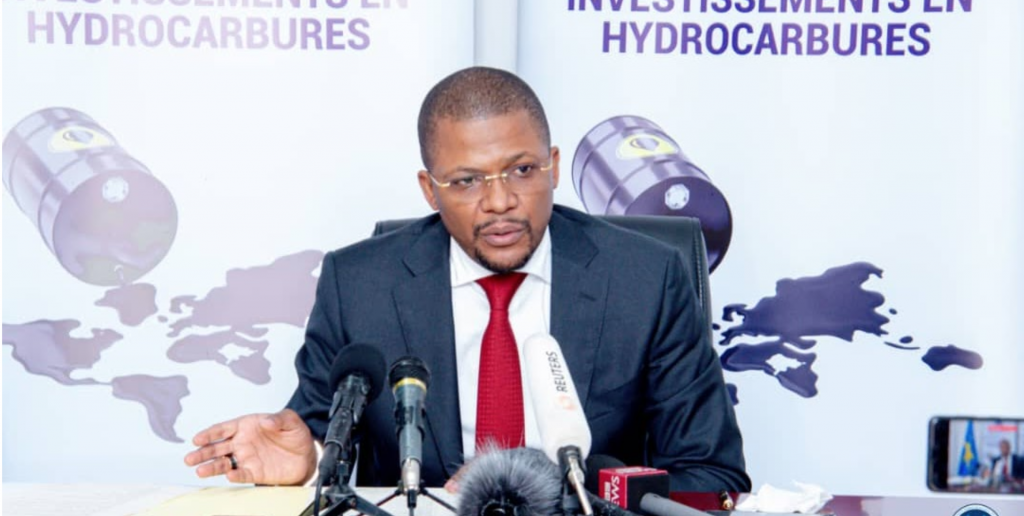
D.R. Congo opens new Bid Round for 30 oil & gas blocks
The Ministry of Hydrocarbons of the Democratic Republic of Congo (DRC) has officially opened today a new Bidding Round for 30 blocks across the country. The blocks are spread out across five different basins: Cuvette Central, Coastal Basin, Lake Tanganyika, Lake Kivu and the Albertine Graben. The Bid Round is supported by Xcalibur Multiphysics and is expected to close in April 2023. Interested parties are requested to send Expressions of by January 31st, 2023. Only registered, pre-qualified companies will be able to bid. According to authorities, the DRC contains oil resources estimated at around 22 billion barrels of oil and 66 billion barrels of methane gas in Lake Kivu. Independent operator Perenco already produces small quantities of oil and gas there, estimated at 25,000 barrels of oil equivalent per day (boepd). This marks the third bidding round to be launched in sub-Saharan Africa over the past 12 months after Mozambique in November 2021 and Sierra Leone in May this year.
Read more »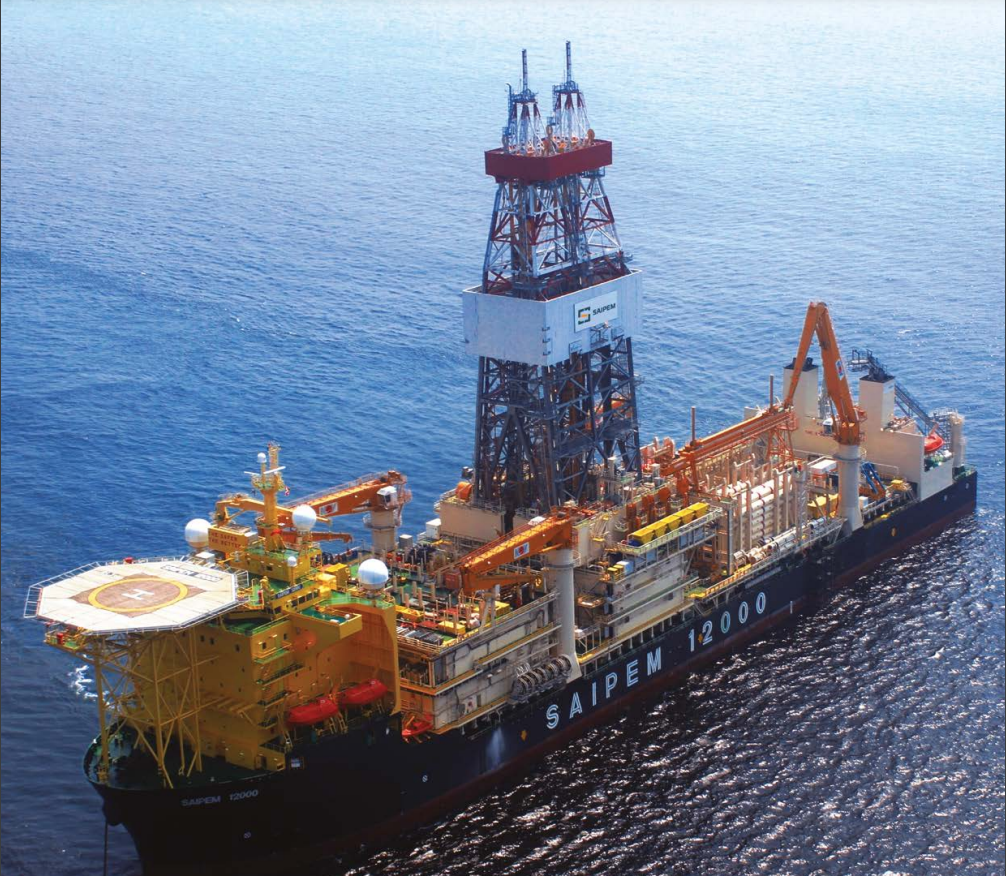
Côte d’Ivoire: Eni increases reserves at Baleine discovery by 25% with second successful well
Italian major Eni has announced the successful drilling and testing of the Baleine East-1X well within Block CI-802 offshore Côte d’Ivoire. This is the first well to be drilled in the block and targeting the Baleine structure discovered in 2021 in the adjacent Block CI-101. Results from the wells have allowed to increase the volumes of hydrocarbons in place at Baleine from 2bn barrels of oil and 2.4 Tcf of associated gas to 2.5bn barrels of oil and 3.3 Tcf of associated gas, Eni has revealed. The well is located 5km east of the Baleine-1X discovery well and reached final depth of 3,165m (measured depth) in water depth of some 1,150m. “From the vertical borehole a horizontal drain of 850 m in length was subsequently drilled into the reservoir to perform a production test that confirmed a potential of at least 12,000 bbl/d of oil and 14 Mscf/d of associated gas of production from the well Baleine East 1X,” Eni said. In order to achieve First Oil from Baleine’s by H1 2023, Eni will be drilling a third well on the structure. The company expects to produce 12,000 bopd and 17.5 MMscf/d from Phase 1 next year before ramping up to at least 75,000 bopd and 140 MMscf/d in a second phase due in 2026. Details on the ongoing development of the Baleine deepwater field are available in the “Projects” section within your Hawilti+ research terminal.
Read more »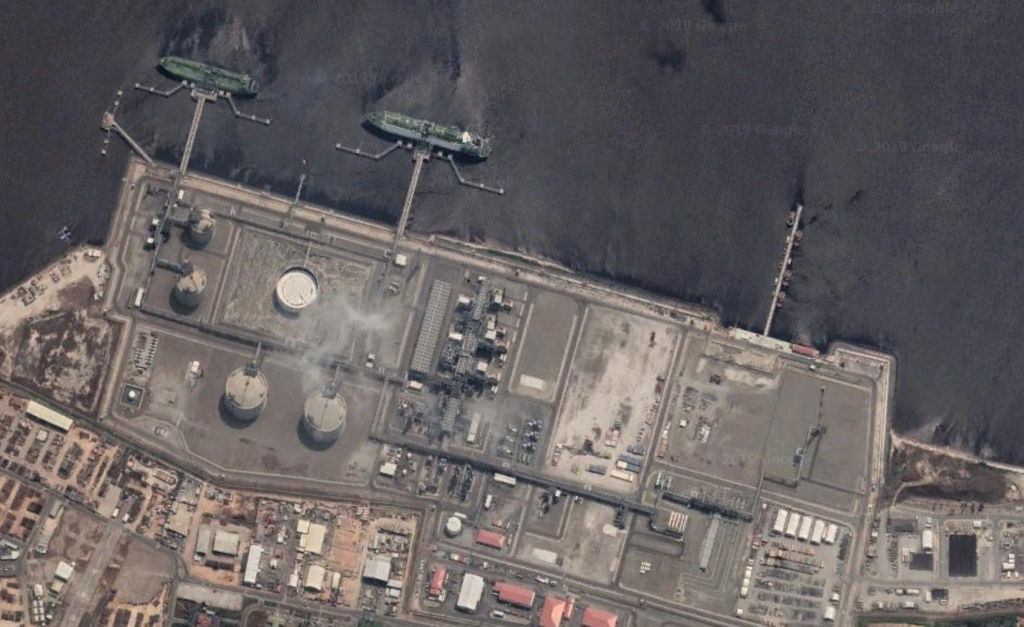
All gas: Eni takes FID on Quiluma and Maboqueiro gas project in Angola
Italian major Eni has announced the successful completions of negotiations to start up the New Gas Consortium (NGC) in Angola. The partnership was announced in late 2019 and includes Eni as operator (25.6%) along with Chevron (31%), bp (11.8%), TotalEnergies (11.8%), and Sonangol (19.8%). The consortium is developing Angola’s first non-associated gas project by focusing on the Quiluma and Maboqueiro gas fields. The development plan includes two offshore wellhead platforms and an onshore gas processing plant connected to Angola LNG’s Soyo export terminal. The project will provide feedstock to Angola LNG, who until now has relied solely on associated gas that was previously flared. Activities will start in 2022 with First Gas scheduled for 2026 and an expected production of 330 MMscf/d at plateau. Partners in the New Gas Consortium are all shareholders in Angola LNG and have a strategic interest in investing into new feedstock supply for the 5.2m tpy facility. Ultimately, the Quilume and Maboqueiro gas fields will be operated by Azule Energy, the new joint-venture of Eni Angola and bp Angola announced earlier this year.
Read more »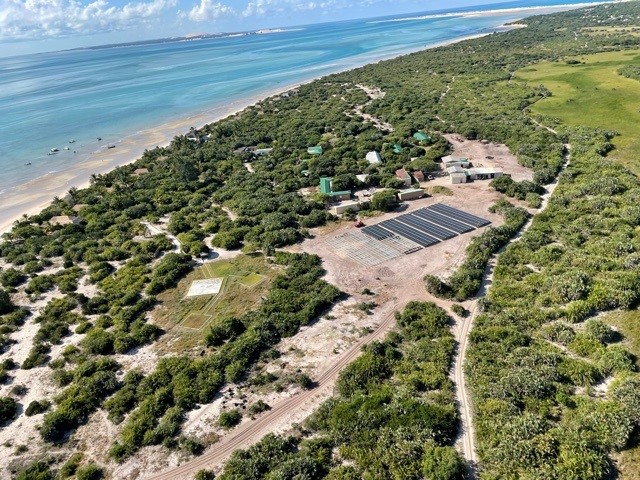
Ncondezi Energy launches feasibility study for 300 MW of solar PV plus BESS in Mozambique
LSE-listed Ncondezi Energy announced last week that it has launched a feasibility study for up to 300 MW of solar PV power plant plus a battery energy storage system (BESS) in Mozambique. The project is planned in the country’s Tete Province where the company is already developing an integrated coal mine project under mining concession 5967C. The solar power plant is planned by its subsidiary, Ncondezi Green Power Holding, and would connect to the Mozambican grid to supply electricity to the country and the larget Southern African Power Pool (SAPP). WSP Group Africa has been selected to carry out the study, expected to last four months. Electricity production could then start as early as 2024. “The FS Study will take a modular design approach to the Solar Project allowing for greater flexibility including the potential for a scaled development programme of 30MW, 60MW, 100MW, 200MW and 300MW,” Ncondezi Energy said. In October last year, Ncondezi Energy had already commissioned its maiden commercial & industrial 400 kWP solar and 912 kWh battery storage project in Mozambique.
Read more »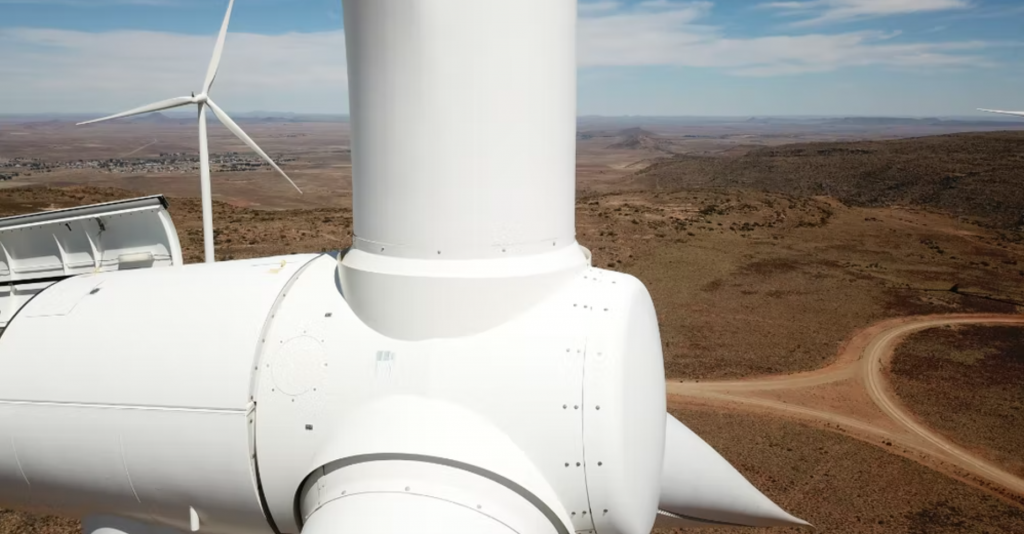
Lekela Power sold in “Africa’s biggest renewable energy deal”
Actis and Mainstream Renewable Power have sold Lekela Power to the Infinity Group of Egypt and the Africa Finance Corporation (AFC). With an installed wind power capacity of 1 GW, Lekela Power is Africa’s largest pure-play renewable energy independent power producer (IPP). The platform was until now owned at 60% by Actis and 40% by Mainstream Renewable Power Africa Holdings. It currently owns five operational wind farms in South Africa (624 MW), one in Egypt (252 MW), and one in Senegal (159 MW). “This acquisition marks an important milestone in our journey to build a 3GW renewable energy platform. Working together with our partner, Infinity, we aim to more than double the capacity of our joint operating assets over the next 4 years, which stands at 1.4 GW after the Lekela acquisition,” said Samaila Zubairu, CEO of the AFC. Several projects are already in Lekela Power’s pipeline including the expansion of Senegal’s 159 MW Taiba Ndiaye Wind Farm by 100 MW and the addition of 175 MWh of battery storage. In Ghana, the platform is also planning the Ayitepa Wind Farm in two phases of 150 MW and 75 MW.
Read more »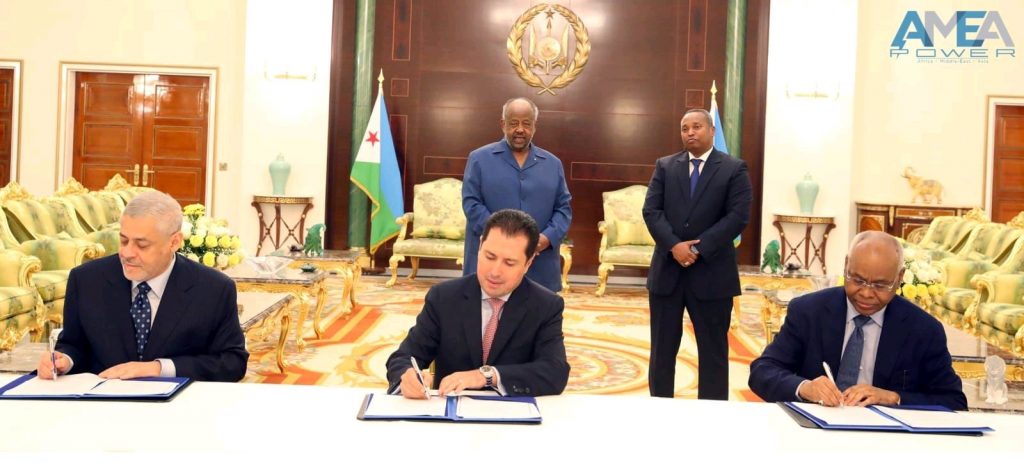
AMEA Power to build 30 MW solar plant in Djibouti
Earlier today, AMEA Power announced the signing of an Implementation Agreement (IA) and Joint Development Agreement (JDA) for a new 30 MW solar PV plant in Djibouti. The official ceremony was held in Djibouti in the presence of His Excellency President Ismail Omar Guelleh. The project will be Djibouti’s first solar independent power producer (IPP) and demonstrates the country’s commitment to ramping up renewable energy capacity. In Ghoubet, near Lake Assal, Siemens Gamesa is currently completing the construction of a 60 MW wind farm on behalf of Red Sea Power, the country’s first wind IPP. The project is majority owned by the Africa Finance Corporation (AFC).
Read more »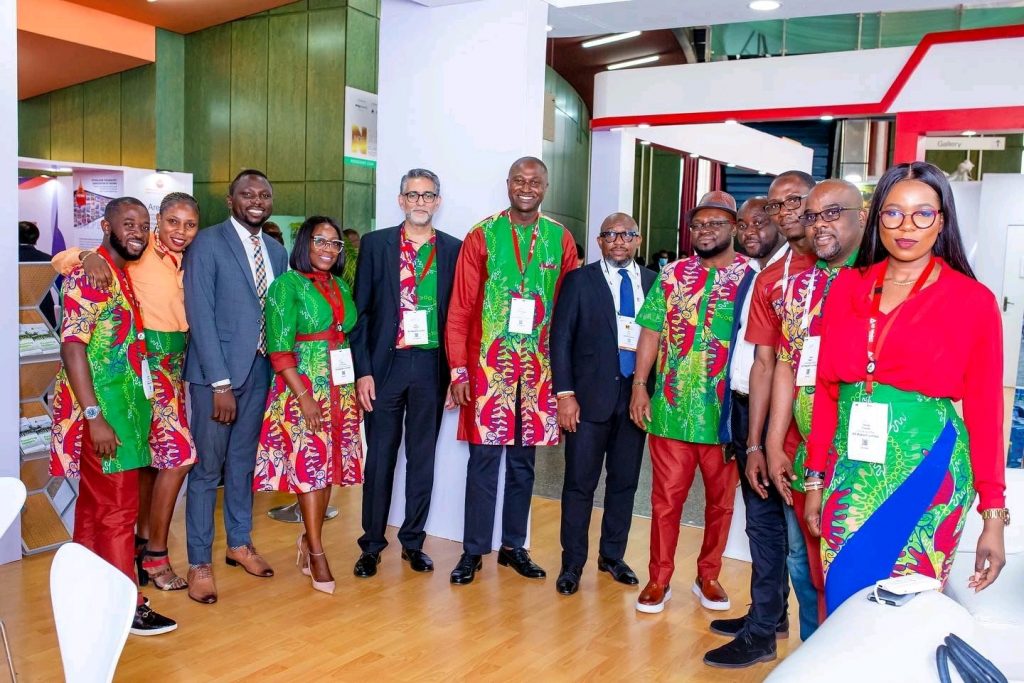
Eberechukwu Oji: Nigeria needs to make gas available to all its states capital cities
By the end of its Decade of Gas in 2030, Nigeria needs to have brought gas to all its state capital cities if it wants to truly spur industrialization, ND Western CEO Eberechukwu Oji said in Abuja last week. Oji was speaking at the 21st NOG Conference & Exhibition that took place from July 4-7, 2022. “A country is considered industrialized if its industrial output stands at around 20% of its gross domestic product (GDP),” he said. “Nigeria is far below that but has an opportunity to boost manufacturing and industrial production by monetizing its natural gas reserves. To reach that goal, we need to implement policies that enable capital to flow into gas infrastructure and make gas available to all of Nigeria’s state capital cities,” he added. ND Western owns 45% of OML 34 in the onshore Niger Delta where it produces oil and natural gas. It notably operates three gas processing plants there with a combined capacity of 600 MMscf/d and supplies gas to power plants and industries. However, illiquidity in the power sector value-chain has made investments into gas production uneconomically, and demand for gas-based industrialization is seen as much more attractive for operators in Nigeria. In May this year, ND Western partnered with another Nigerian independent, First Hydrocarbons Nigeria (FHN), and with gas distributor Falcon Corporation to provide gas to the Lagos Free Zone. The Gas Infrastructure Development Agreement (GIDA) was signed with their special purpose vehicle, Optimera Energy FZE, and will start delivering an initial 5 MMscf/d of gas from 2024. “We need to unlock investments into distributing gas to all of Nigeria’s industrial hubs,” Oji explained. “Even some demand centers in the East remain in need of gas for their industries. We need to look at the originally conceived eastern gas network and make gas available in Benue, Ebonyi, and Anambra states.” Oji was speaking on the day when the Parliament of the European Union backed new rules labelling investments in gas and nuclear power plants as climate-friendly. “Nigeria needs to get down to business with these new rules and think of commercializing its gas on a much larger scale for the export and domestic market,” he commented.
Read more »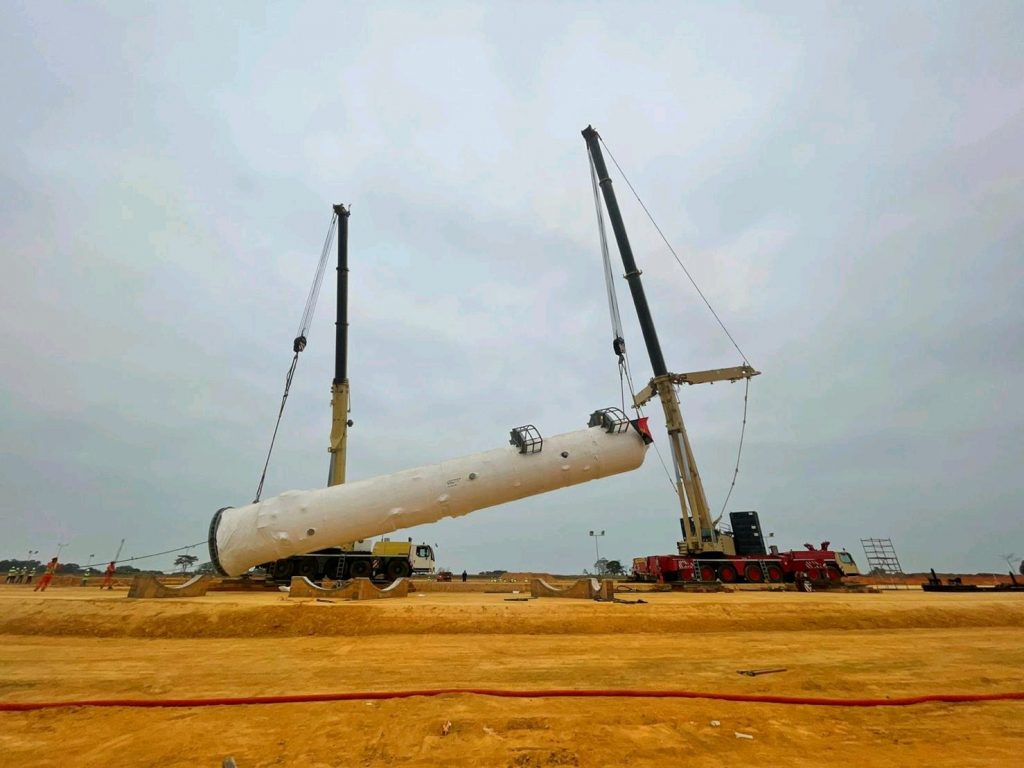
How decentralisation can support the expansion of Africa’s refining sector
by Souheil Abboud, Managing Director, VFuels LLC. Africa’s refining capacity has traditionally been concentrated around key hubs in Algeria, Egypt, South Africa and Nigeria. Combined, these four countries represent almost 75% of Africa’s installed refining capacity thanks to large-scale refineries that operate with various levels of reliability. However, Nigeria and South Africa have lost their status of refining hubs in recent years. Nigeria because of under-investment and lack of maintenance in its three state-owned refineries, and South Africa because of the gradual shut-down or conversion of its own facilities. As most African nations seek to secure their fuel supplies by building their own refineries, modular technologies and designs have been on the rise. While the trend first emerged out of Nigeria, it has quickly spread across the continent and modular refineries are now being built from West to Southern Africa. Modular technology solutions make it possible to address several critical challenges and needs of emerging markets, especially in Africa. They notably offer clients the opportunity to set up a refinery in approximately 13+ months from inception to start of production. This compares favorably with the 3+ years for a traditional “stickbuilt” refinery. Such decentralized assets also avoid a lot of the regular land, infrastructure, and logistics challenges associated with larger projects. Modular refineries have a quick return on investment (RoI) of approximately 2 years, enabling developers and their investors the ability to recoup their invested capital sooner. They offer a lot of flexibility when it comes to capex and opex, and the ability to gradually invest in additional modules to support capacity expansion over time. Finally, the modular refining technology makes project’s development simple and efficient. It notably requires less manpower and direct supervision, which in turn provides significant costs savings and reduced operating expenses. At VFuels, we have developed a solid track record of executing modular refinery projects for African clients. These include the 5,000 bpd Waltersmith refinery in Nigeria, the 10,000 bpd Conex refinery in Liberia, and the 30,000 bpd Cabinda refinery in Angola where factory acceptance tests (FAT) were completed in May 2022. As we continue to support Africa’s energy security agenda with modular refinery solutions, we also believe in the sustainability of African infrastructure assets. Earlier this year, we entered into a joint venture agreement with Earth Technologies to develop and install clean energy infrastructure for African oil & gas assets, including refineries. We also set up a collaboration with EMCO Engineering to develop water treatment facilities and deploy controls and digital solutions across various sectors in Africa.
Read more »Increasing LNG availability in Nigeria will support new sustainable development models for Nigerian industries
by Ken Etete, Group CEO, Century Group. Nigeria is one of the world’s biggest LNG exporters. Since the first train at Nigeria LNG was commissioned in 1999, the country has built a massive LNG export complex with a capacity of 22.5 million tonnes per annum (mtpa). Last year, it held a 6% market share of the global LNG export market and was the world’s 6th largest exporter of the commodity. But while Nigeria’s gas has benefited industrialization and power generation overseas, LNG has remained relatively absent of its domestic market. This is now changing along with the government promotion of gas as a transition fuel and increasing private sector investment into virtual gas pipelines. At the Century Group, we have always believed that gas was meant to play a bigger role in supporting Nigeria’s industrialisation and energy access. As early as 2011, we set up Gas Plus Synergy (GPS) to support the monetization of associated gas and reduce carbon emissions across the country’s oil & gas sector. In 2021, our efforts paid off with the signing of a Sales & Purchase Agreement with Nigeria LNG for the delivery of LNG to the domestic market. Moving forward, we will continue to expand Nigeria’s domestic gas value-chain, and are committed to incentivize the switching from diesel to gas across sectors such as manufacturing and transport. This will support new sustainable development models for Nigerian industries, and ultimately make the economy more resilient. As Nigeria recovers from a recession caused by the Covid-19 pandemic and crash in oil prices, there are several reasons to be bullish on the future of its domestic gas market. To begin with, the country has increasingly become aware of the potential to develop its 206 Tcf of gas reserves both for the domestic and for the export markets. The 2020-2030 period has been declared “Decade of Gas” and is seeing several incentives to boost gas monetization. Nigeria has also taken a clear stance in favor of gas even as it thrives to reach net 0 emissions by 2060. Market dynamics are also evolving in a favorable way and will be providing positive grounds to support gas adoption moving forward. Throughout the end of 2021 and first quarter of 2022, fluctuating commodity prices have sent diesel prices soaring, generating significant operational expenses for Nigerian industries that heavily rely on diesel for power generators and logistics. As a result, demand for cheaper and cleaner fuels such as CNG and LNG is growing. It is now up to Nigerian companies and financiers to step up and meet the needs of the hour.
Read more »We must provide Nigerian operators with a modular approach to gas commercialisation
by Kayode Adeleke, CEO, RusselSmith Nigeria has made significant efforts in reducing the flaring of associated gas over the past few years. However, we are still a long way from eliminating routine flaring in the country, and too much gas remains wasted and burnt into the atmosphere. Whilst commendable initiatives such as the Nigerian Gas Flare Commercialization Programme (NGFCP) have been put in place by the government to monetize associated gas, the private sector needs to step up and find new ways to build the processing and monetization infrastructure that we need to extract as much value as possible from our gas. Globally, the oil & gas industry has succeeded in finding ways to transform even the smallest quantities of gas into commodities such as diesel, naphtha, LPG, CNG, or LNG. With its vast gas reserves, Nigeria offers a fertile ground to adopt such innovations, and the Nigerian services industry has an important role to play in introducing world-class gas processing technologies to the Nigerian market. A key challenge to the elimination of flaring in Nigeria is the proliferation of flare sites across the Niger Delta, which have made it more difficult to access or aggregate gas. However, this challenge presents unique opportunities for service companies to deploy modular and small-scale gas processing solutions from an off-take as small as 2 MMscf/d. Nigerian services companies are particularly wellplaced to take on such a responsibility, given the strong capacity that they have built over the past decade. Their ability to attract and work with global technology providers can help turn the country’s gas into valuable commodities for its industries and its economy. Nigeria already has several success stories of local companies working with global partners to monetize flared gas. With the recent introduction of the Petroleum Industry Act (PIA), now is the time to build on these successes and take them to the next level. At RusselSmith, we see tremendous prospects in gas, from small to large scale developments. In order to support the decarbonization of upstream operations and increase the availability of key products such as cooking gas, RusselSmith, through its gas subsidiary, G2L Energy Solutions, is notably working with an international partner to offer new and modular gas-to-liquids technology solutions to the Nigerian market. Our commitment to improving gas commercialization is driven by a firm belief that the success of any industry depends on the ability of its service providers to be innovative and provide their market with sustainable solutions.
Read more »In South Sudan, a private company has big ambitions to expand energy infrastructure
Since its establishment in 2012, Trinity Energy has grown into South Sudan’s largest independent energy business. The company is the first local entity to be registered to lift crude oil from South Sudan and has become one of the pillars of the country’s energy security. Its trading arm currently exports South Sudanese oil before re-importing finished petroleum products into the market. In March 2022, Hawilti spoke with Founder & Chairman Akol Ayii about South Sudan’s recovery prospects and Trinity Energy’s expansion plans. How do you assess South Sudan’s recovery prospects in 2022? The past two years have been challenging due to the headwinds presented by the COVID-19 pandemic. Besides the shutdowns in South Sudan as a market, there were also significant logistical challenges in importing petroleum products due to border shutdowns during the pandemic. This is because the majority of our refined products’ supplies are from the surrounding East African markets. Needless to say, Covid-19 has impacted the demand for petroleum products in South Sudan, and altered the timeline of key projects within the energy sector, including that of our own refinery. That said, the historic recovery of crude oil prices is now providing a boost to the country’s economy because oil revenues account for about 30% of the government’s budget. We expect a trickle-down effects across other sectors throughout 2022 and 2023. In the year 2020/21, the Government hadalso made strategic investments in thebuilding or roads and highways. We arenow starting to see the positive impact ofsuch infrastructure spending across theeconomy. Meanwhile, we remain optimistic that as a result of the peace agreement and the implementation of the Government ofNational Unity, the business environment in South Sudan will continue to improve.In 2021, the IMF estimated South Sudan’s real GDP growth at +4.5%, with the forecast for this year revised upward to+6.5%. This maintains the country as one of Africa’s fastest-growing economies. As the economy recovers, where do you see most investment opportunities in the oil & gas sector? Oil revenues represent on average 25-30%of South Sudan’s budget so the sector iscritical to the wellbeing of the economy.The government has maintained itsambition to restore crude oil productionto pre-conflict levels of 350,000 barrels ofoil per day (bopd), which wouldsignificantly boost economic growth. The energy security policy of the countryis two-folded: on one hand enhanceexploration activities and bring more oilwells into production, and on the otherset up South Sudan’s own petroleumrefinery. As part of efforts to boost upstream activity, the country’s first licensing round since independence was launched in 2021. It is anticipated to be an economic accelerator spurring investments by international oil investors and service companies into the country’s emerging oil and gas sector. In that context, what updates do you have on Trinity Energy’s expansion plans? Trinity Energy has already invested closeto $13m in the roll-out of its current retailnetwork of 20 fuel stations in SouthSudan. Our focus has been and remains onconstructing and acquiring an additional100 outlets in the country within the next4 years. We plan for 40 of these stations tobe in Juba, while the other 60 stations willbe spread in all the 10 states across SouthSudan. As a key proponent of the Intra-Africa trade, we are also actively pursuing growth opportunities in East, Central, andSouth Africa. We already have a presence in Kenya and recently entered theDemocratic Republic of Congo. Moving forward, we are developing opportunities in Malawi, Somaliland, and Uganda and are launching four new fuel retail stations in Nairobi in the first quarter of 2022. Another significant component of ouractivities is aimed at expanding ourstorage facilities in South Sudan. Wecurrently own 6 million litres of fuelstorage at our depot in Nesitu, with anadditional 2 million litres of storage underdevelopment. To further support ourgrowth strategy, we will be constructingan additional 50 million litres of storagecapacity in Koda, just outside Juba. Wehave also engaged Nilepet for theconstruction of a storage terminal inBentiu. We target to leverage these storage facilities to supply petroleum products into neighbouring countries includingEthiopia, the Central African Republic, and the D.R.C.
Read more »